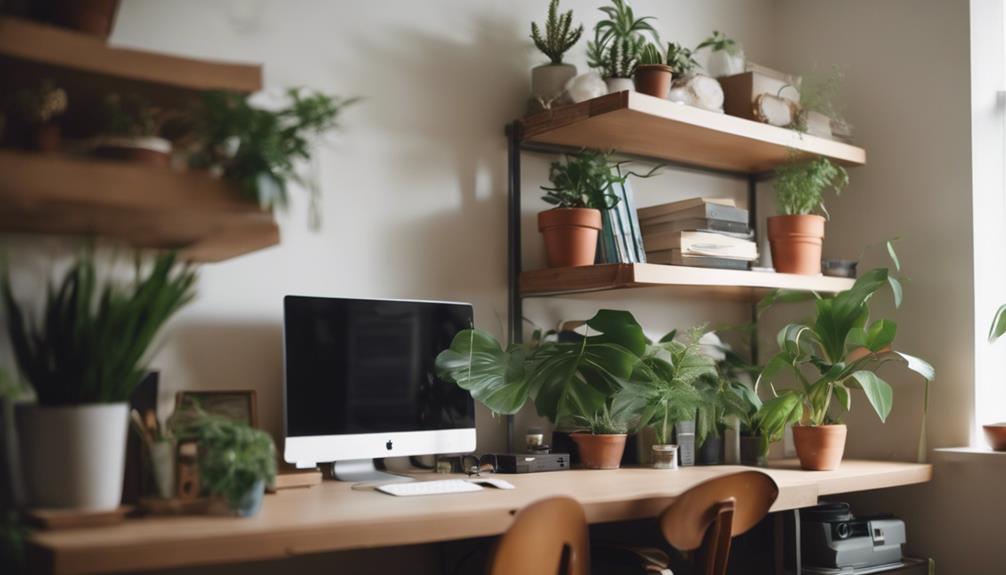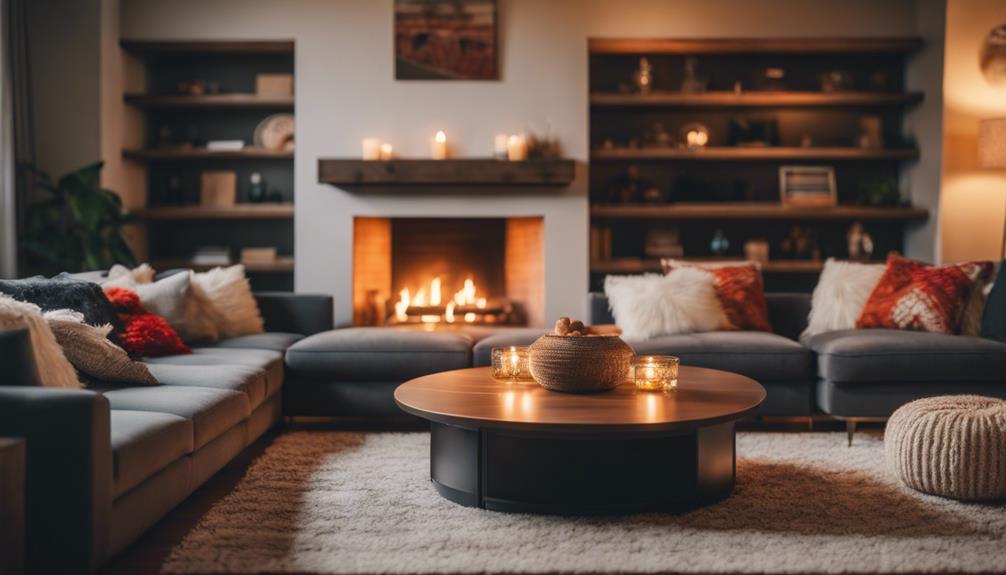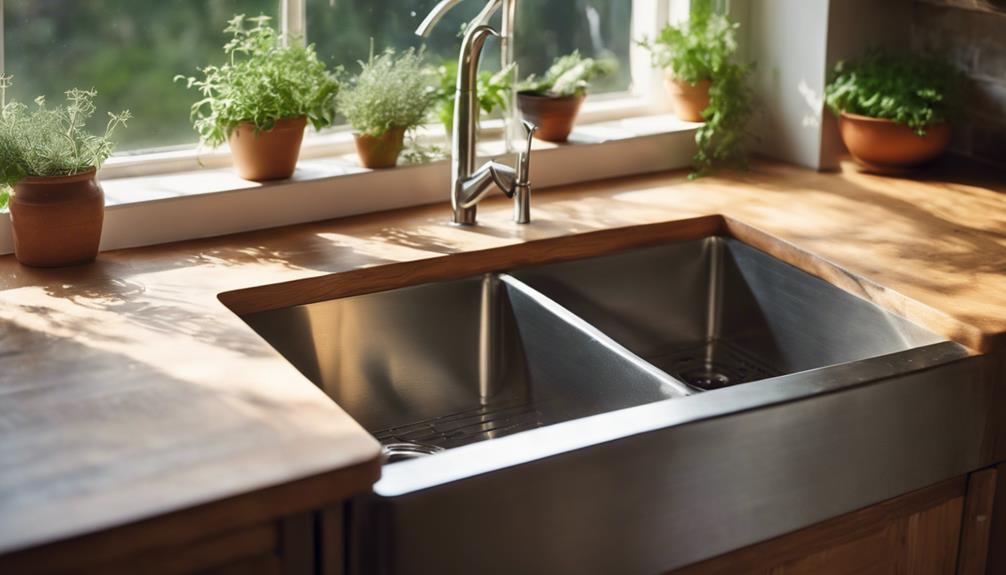You can enhance your space and improve your well-being by taking on a decluttering challenge. Begin by establishing clear objectives and focusing on one specific area at a time, such as your kitchen or living room. Dedicate 15-30 minutes each day to organizing items into four categories: Keep, Donate, Trash, and Undecided. Celebrate small wins to stay motivated. Overcome emotional connections by questioning the necessity of each item and visualizing a clutter-free space. By adopting new routines, you will experience greater mental clarity and decreased stress. Stay tuned for additional tips on keeping up with your organized space and enriching your lifestyle.
Key Takeaways
- Set clear decluttering goals to guide your challenge and create a focused plan for transformation.
- Start small by tackling one area daily, dedicating 15-30 minutes for effective progress.
- Use the four-box method (Keep, Donate, Trash, Undecided) to streamline sorting and decision-making.
- Celebrate small victories to maintain motivation and encourage further decluttering efforts.
Benefits of Decluttering

Decluttering offers numerous benefits that can greatly enhance your home environment and overall wellbeing.
By clearing out unnecessary items, you create a more aesthetically pleasing space that invites relaxation. This newfound order contributes to your mental clarity, reducing stress and anxiety levels considerably. You'll find it easier to unwind after a long day, transforming your home into a sanctuary.
Additionally, a decluttered kitchen encourages healthy cooking habits, making meal preparation more enjoyable. As you simplify your surroundings, you foster a sense of accomplishment and control over your life.
Ultimately, decluttering not only improves your physical space but also promotes a healthier mindset, allowing you to focus on what truly matters in your life.
Steps to Get Started
How can you begin your decluttering journey effectively? Start by setting clear goals and creating a plan. Break down your tasks into manageable steps to avoid feeling overwhelmed. Use the table below to visualize your approach:
| Step | Action |
|---|---|
| Choose a space | Pick one room or area to tackle first |
| Set a timer | Limit each session to 30 minutes to maintain focus |
| Sort items | Use the four-box method: Keep, Donate, Trash, Undecided |
Engage with the process daily, celebrating small victories to keep your motivation high. Remember, it's about progress, not perfection. Stick to your plan, and you'll create a more organized, peaceful environment in no time!
Daily Decluttering Tasks

Each day of your decluttering challenge should focus on a specific task that makes the process manageable and rewarding.
Start by selecting one small area, like a drawer or shelf, to tackle. Dedicate 15-30 minutes to sort through items, deciding what to keep, donate, or toss. The four-box method can help streamline this process.
Next, move on to another designated area each day, gradually building momentum. Don't forget to celebrate your progress; even small victories count!
Keeping a checklist can help you stay organized and track completed tasks. By breaking down your decluttering into daily tasks, you'll make steady progress while feeling accomplished and motivated to continue transforming your space.
Tackling Common Clutter Areas
To effectively tackle common clutter areas, focus on one space at a time, ensuring you address the most chaotic spots first.
Start with your kitchen counters and cabinets, clearing out expired items and organizing essentials.
Next, move to the living room, removing unnecessary decor and rearranging furniture for better flow.
Your bedroom should be next; sort through clothing, and consider donating items you haven't worn in a year.
For bathrooms, discard expired products and consolidate toiletries.
Finally, tackle your home office by sorting through paperwork and creating designated spots for important documents.
Tools for Effective Decluttering

Utilizing the right tools can considerably enhance your decluttering journey and streamline the organization process. By equipping yourself with effective resources, you'll make the task easier and more efficient.
Here's a list of essential tools to reflect upon:
- Declutter checklists: Keep track of areas to focus on.
- Storage solutions: Use bins, baskets, or shelves to organize items.
- Donation bins: Easily collect items you want to give away.
- Cleaning supplies: Freshen up spaces as you declutter.
With these tools at your disposal, you'll find decluttering not only manageable but also rewarding.
Immerse yourself with confidence and watch your space transform!
Overcoming Emotional Attachments
Overcoming emotional attachments to belongings can be a challenging yet essential step in the decluttering process. You might find it tough to let go of items tied to memories or significant moments.
Start by questioning the necessity of each piece: Does it serve a purpose or bring you joy? Visualize your space without clutter; this can help clarify your priorities. Focus on the benefits of a serene environment instead of the past.
Remember, it's okay to keep a few meaningful items, but don't let sentimentality control your space. By embracing a mindset of letting go, you'll create room for new experiences and maintain a home that reflects your current self.
It's all about progress, not perfection.
Maintaining a Clutter-Free Space

Maintaining a clutter-free space requires consistent effort and a few simple habits integrated into your daily routine. By adopting these practices, you can enjoy an organized environment that promotes peace and productivity.
- Schedule regular decluttering sessions, even if they're brief.
- Implement a “one in, one out” rule to control new items.
- Designate specific spots for belongings to prevent accumulation.
- Involve family members in keeping shared spaces organized.
These habits not only help maintain your clutter-free space but also foster a sense of community and shared responsibility.
Transforming Your Lifestyle
Transforming your lifestyle begins with making intentional choices that prioritize clarity, organization, and well-being in your daily routine.
As you declutter, you'll notice how a tidy space fosters mindfulness and reduces stress. You'll streamline your decision-making processes, allowing you to focus on what truly matters.
With fewer distractions, you'll boost your productivity and creativity, making tasks feel less overwhelming. Embracing this organized approach encourages healthier habits, such as cooking at home and engaging in physical activities.
You'll find joy in simplicity, appreciating your belongings more deeply. Ultimately, a decluttered environment leads to a more intentional life, where you can fully engage with your passions and relationships, creating a peaceful and fulfilling atmosphere.
How Can Decluttering Help Empty Nesters Transform Their Space?
Decluttering can transform your empty nest space into a rejuvenating sanctuary. Without kids at home, it’s the perfect time to reorganize and repurpose rooms. Simplifying your space can lead to a more peaceful and functional home, allowing you to embrace this new chapter of life with a fresh perspective.
Conclusion
As you wrap up this 30-day decluttering challenge, remember that every item you release is like shedding a layer of old skin, revealing a more vibrant you.
Embrace the newfound space and clarity, allowing your creativity to flourish, much like a phoenix rising from the ashes.
By maintaining your clutter-free sanctuary, you're not just transforming your environment; you're crafting a lifestyle that celebrates intention and peace.
So, go ahead—let your space reflect the beautiful journey you've begun!









